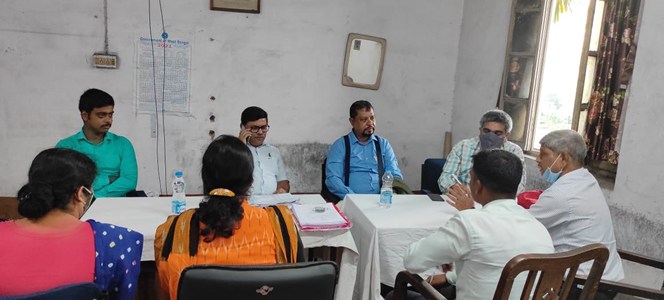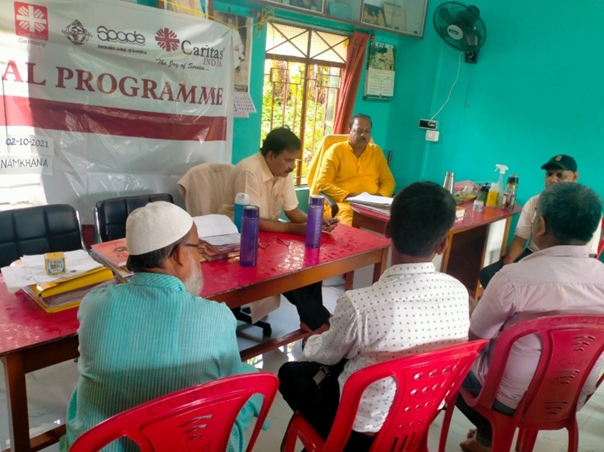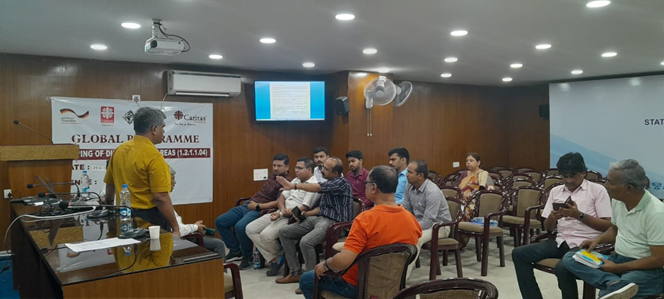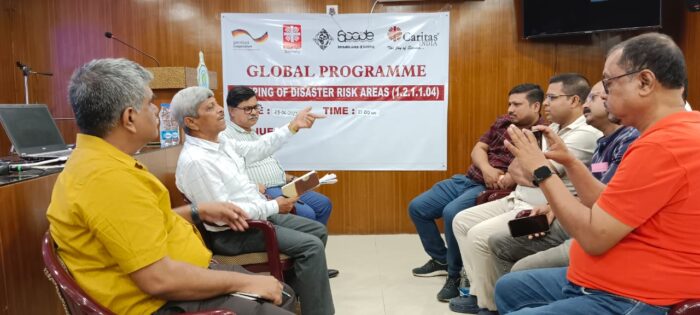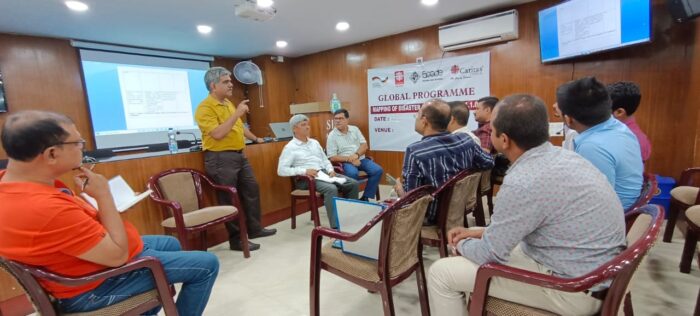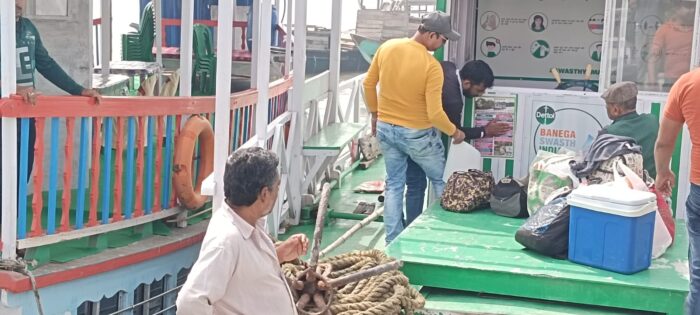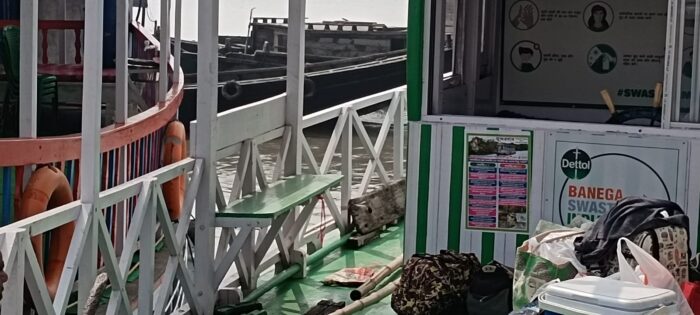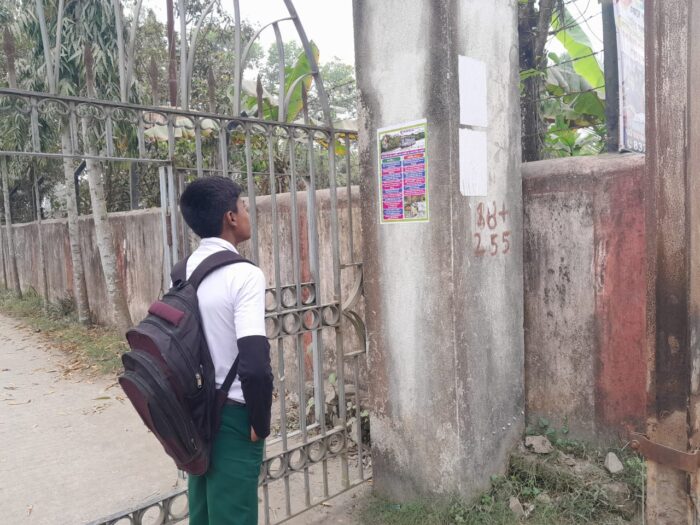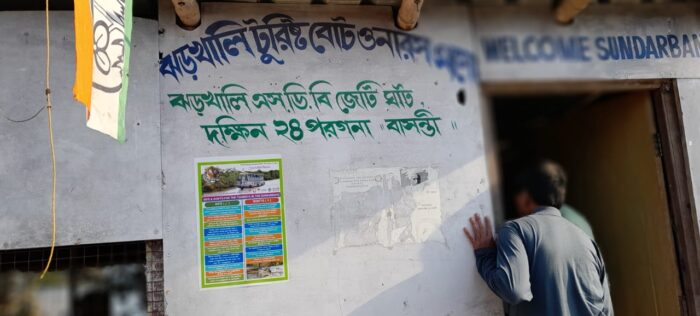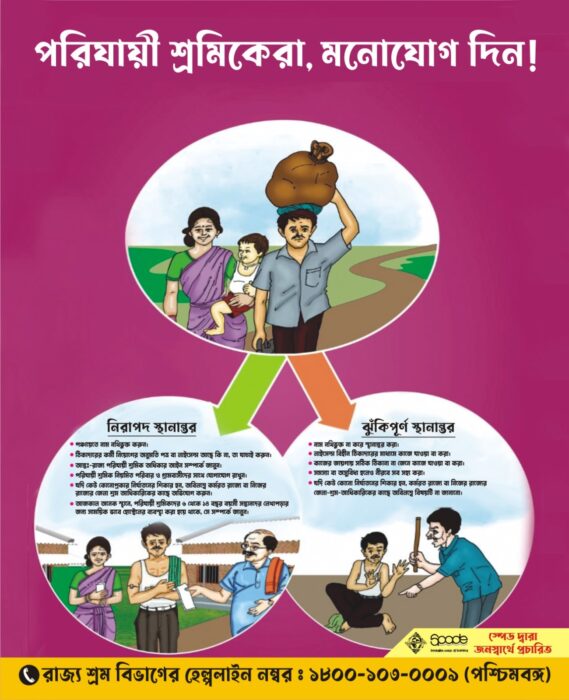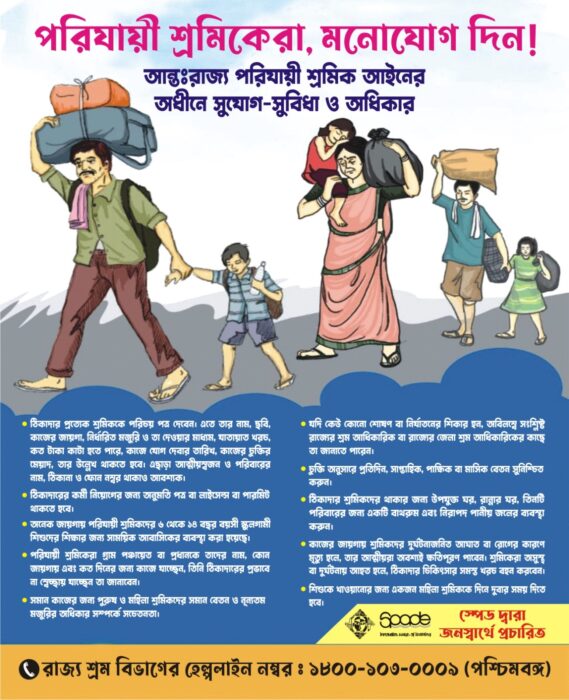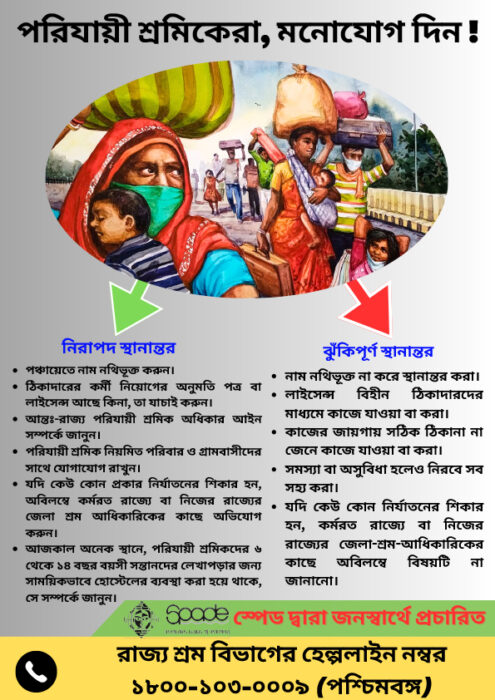Supported by: Caritas India and Caritas Germany
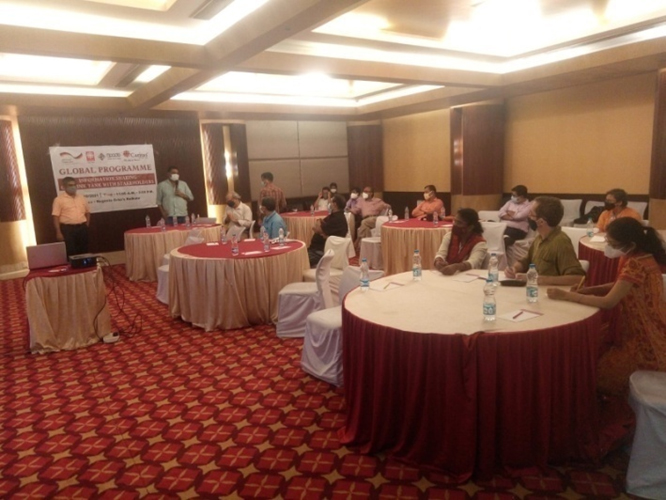 SPADE implements the GPI Project since April 2021 with support from Caritas Germany and Caritas India in the Sundarban region of South 24 Paraganas district West Bengal. A brief detail of the Project is delineated hereunder:
SPADE implements the GPI Project since April 2021 with support from Caritas Germany and Caritas India in the Sundarban region of South 24 Paraganas district West Bengal. A brief detail of the Project is delineated hereunder:
Overall development Objective:
The Global Programme on Poverty Reduction and Food Security, Promoting Social Inclusion of Particularly Marginalised Groups and Increasing Resilience to Disasters in High-Risk Areas will make a sustainable contribution to SDG 2 (Ending Hunger, Achieving Food Security and Better Nutrition and Promoting Sustainable Agriculture), SDG 10 (Reducing Inequality within and Between States) and SDG 13 (Sustainable Measures to Combat Climate Change and Its Impacts).
Specific objectives of the Project are: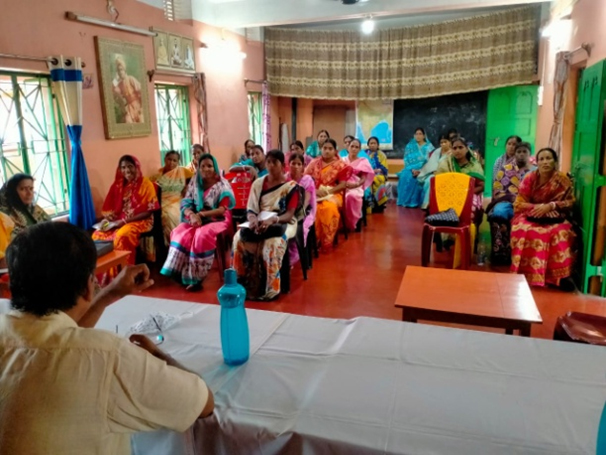
- The vulnerability of the population to disasters and the number of victims and extent of damage caused by disasters are reduced by improving the disaster management system at the national, state and local levels and
- The of various stakeholder groups (Vertreter_innen of target groups, Mitarbeiter_innen NGOs and public authorities) in the areas of disaster preparedness and food security as well as social inclusion has been improved through systematic and regular exchanges at congresses, workshops, studies and further education programmes of specialist and higher education institutions, and channels for knowledge transfer are institutionalised.
HR involved:
GPI Project implementation team of SPADE consists of three personnel, namely Arkadipta Banerjee (Project Coordinator), Ashim Joachim Campoo (Research and Dialogue Coordinator) and Somnath Dey Sarkar (Accountant).
- Creation of a think-tank and database in West Bengal with materials for information exchange between NGOs and individuals at the country level working in the field of disaster preparedness
- Strengthening the Inter-Agency Groups (IAG) in South 24 Paraganas district by training NGO personnel and coordinate coordinated response mechanisms and also to train them regarding governmental programs for the promotion of rural development, which are also related to disaster management and are implemented in coordination with governmental institutions DDMA, SIPRD & NABARD
- Workshop with government agencies, the Sundarbans Development Committee, NGOs and universities to analyze environmental aspects of disaster preparedness programs in the Sundarbans
- Review the district disaster management plan in the Sunderbans and integrate risk management measures
- Mapping of disaster risk areas at the district level and revision of DDMPs based on revised plans to implement prevention measures
- Coordination meeting between representatives of civil society and representatives of governmental catastrophe programs in the Sunderbans region of West Bengal
- Preparation of a status report on the problems of the Sundarbans region regarding climate change, disaster preparedness and economic and ecological perspectives
- As a follow-up to the documentation, annual progress reports on the implementation of the recommendations will be prepared and publicly presented and discussed at workshops and
- Development, publication and dissemination of teaching materials, systematization of experiences on disaster prevention, food security, promotion of social participation of marginalized groups and community work
Activities done so far:
- A Think Tank consisting of experts from myriad fields like government departments, espeecially related to Sundarban development, Disaster Manchayat, Panchayat and Rural Development, etc, representatives from International as well as local NGOs and CBOs, academic institutions, social workers, pollution control board and so on who lays guideline for the SPADE project implementation team to navigate towards a successful phasing out state leaving an indeleble impact in the endeavor for building resilience for the vulnerable communities in the intervention region
- Training events for the representatives of NGOs working in the Sundarban region have been orgainsed with resource persons from KVK-Neempith, BRAIPARD, NABARD, Disaster Management Department, GoW and other thematic experts to enabale the participants have a thorough knowledge on various conducive government schemes, especially related to food and social security, livelihood and FPO promotion, emergency/ disaster risk management and National Social Assistance Programme (NSAP).
- Two major workshops preceded and followed by several inter personal meetings with representatives from government agencies like forest department, irrigation department, Panchayat and Rural Development Department, Department of Sundarban Affairs and Disaster Management Department along with retired Professor of Jadavpur University have been organised. The learning points and takeaways of such meetings have enables SPADE team reviewing the District Disaster Management Plan (DDMP) and prepare a Status report on Sundarban.
- The DDMP for 2021-22 has been reviewed by identified Resource Person who submitted a complete document with making several recommendations to incorporate DRR issues into the next DDMP. The same was presented with the officials of the Department as well who promised to make changes in subsequent documents.
- Two workshops have been held with the officials of the Disaster Management Department, South 24 Paraganas. Multi Hazard GIS map of 7 Blocks of Sundarban region is already in place. The Department has requested SPADE to further enrich the map by showing infrastructure, institutions, services and so on in these Block
- A status report on the on the problems of the Sundarbans region regarding climate change, disaster preparedness and economic and ecological perspectives has been prepared in 2021 and the document was updated in 2022.
- Development, publication and dissemination of teaching materials, systematization of Several teaching materials on ecology, livelihood promotion, safe migration, etc have been developed and disseminated among the stakeholders with remarkable impact.






